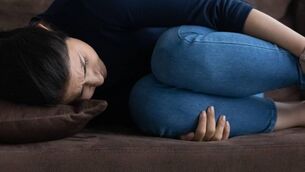Free cultural events for young people could help get bums on vacant seats

Whether a Taylor Swift fan, or opera buff, young people should be offered free cultural passes - just like youths in Italy and Germany, says Colette Sheridan.
Drugs are sold, injected and smoked in the alleyways. And we all know that it costs up to a tenner for a pint in the pubs in that area of Dublin.
You think Cork is expensive? Dublin prices are outrageous. And coupled with this, reflecting the cost of living crisis, there is a decline in the number of young people across the country going to Arts Council-supported events.
In 2019, two thirds of 16 to 24 year olds attended an Arts Council supported event. But last year, only just over a half went to such an event. As the director of the Arts Council, Maureen Kennelly said recently, Ireland risks losing a generation of audiences.
That is bad news on every front. It is obviously hard on artists who depend on audiences. It is limiting for the life experience of young people if they don’t engage much in the arts. And it sets up habits for later life.
The decrease in young folk consuming the arts can be partly blamed on the pandemic. Lockdown meant there were no concerts to attend.
While Covid hasn’t gone away, society is out and about. And the cultural sector is trying to recoup its losses by putting on events, hoping for decent audiences and viewers. But it’s an uphill battle.
Perhaps we should emulate some European countries that have introduced culture passes for young people to spend on books, theatre, music, visual art and films?
Culture is a broad church. It doesn’t have to be high brow. It can be anything from the ballet to rap performances.
Critics of the French culture pass (worth €300 over two years for 18-year-olds) argue about how much freedom young people should have over what they purchase.
As a senator for the French Communist Party, Pierre Ouzoulias told the New York Times: “A kid from the projects will lean toward what he already knows. I can’t for one moment imagine a kid using the pass to go listen to Baroque opera.”
But it is counter-argued that the culture passes, even when spent on so-called low brow entertainment like pop concerts, have lasting merit in that they encourage young people to have a life-long relationship with culture. (And as one ages, pop may be swapped for opera. Taste in the arts evolves over the life span.)
Germany’s KulturPass is worth €200 over two years. As well as addressing the impact of lockdown depriving young adults of cultural activities, it’s an initiative to help Germany’s struggling arts sector. It may be followed by additional funds for 15 to 17 year-olds if it is successful.
I asked two Cork women in their early twenties how they would each spend €200 allocated to cultural events. Lauren and Caroline (not their real names) said the money would be very welcome as they work part-time to pay for their social lives while at college and find that money goes nowhere these days.
Lauren would go straight to Ticket Master and pay to see Taylor Swift and/or Coldplay.
“I’d love to see them at a festival. But they can be very expensive weekends. There’s the tent and the outfits and the food. You can bring your own drink.”
It all adds up to a lot of shift work in a restaurant.
Caroline says she’d spend the money “on something to do with the Irish language. I really like Irish. I’d go with a friend to the Gaeltacht. I had a very good Irish teacher in secondary school.”
Caroline went to a Gael Scoil for her primary school education. She is critical about how Irish is generally taught.
“They teach it like it’s English. They think everyone can understand it but a lot can’t. It should be taught like a foreign language.”
While music is also a big interest of Caroline’s, she wouldn’t go to Irish music sessions. She’s more into rock ‘n roll.
In Cork, we have the Short Story Festival, the Film Festival, Indie Cork, the Jazz Festival and Sounds from a Safe Harbour coming up.
Wouldn’t €200 be very handy for young audiences?







 App?
App?




